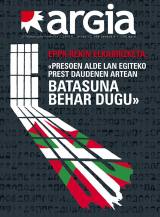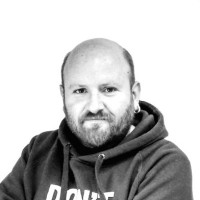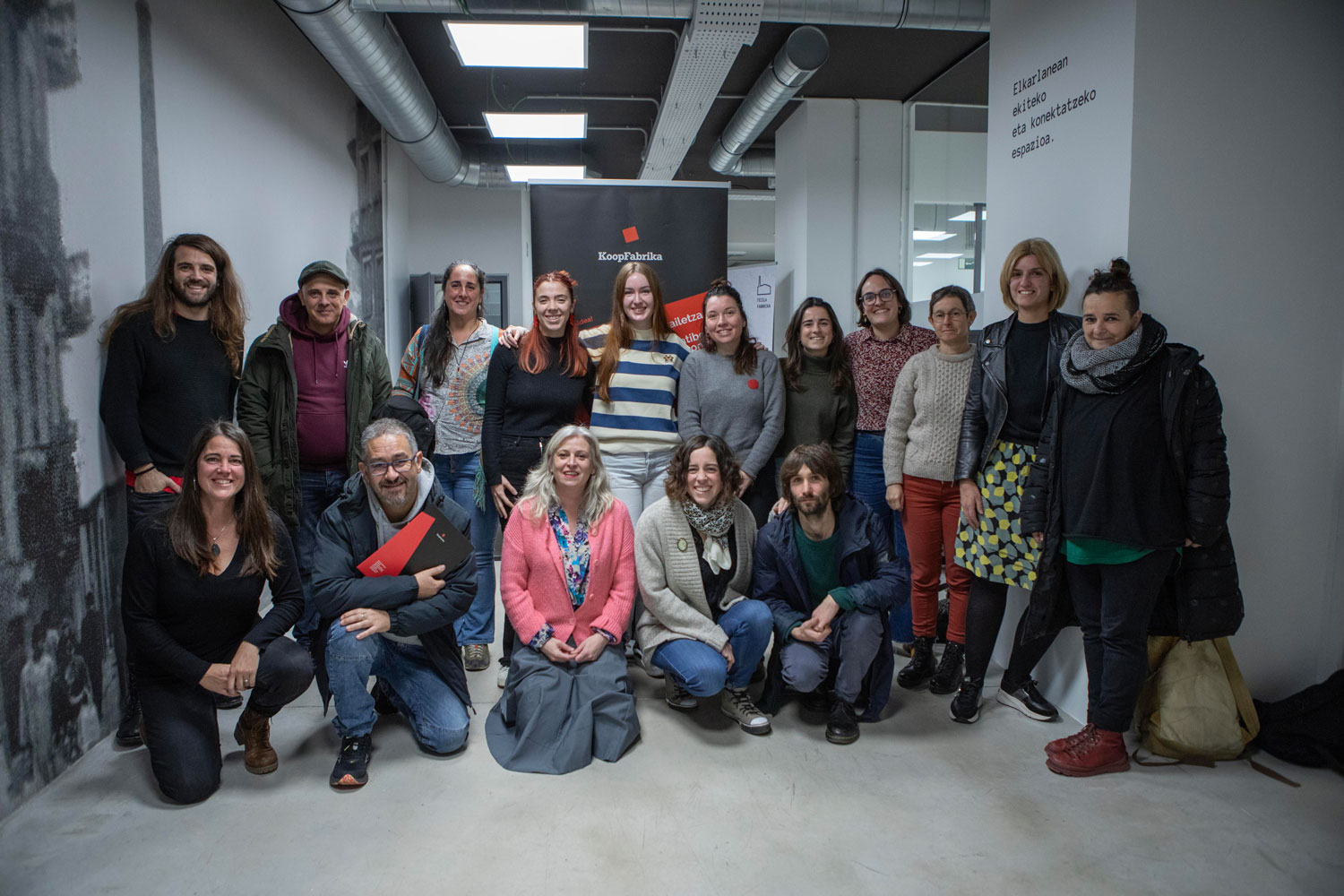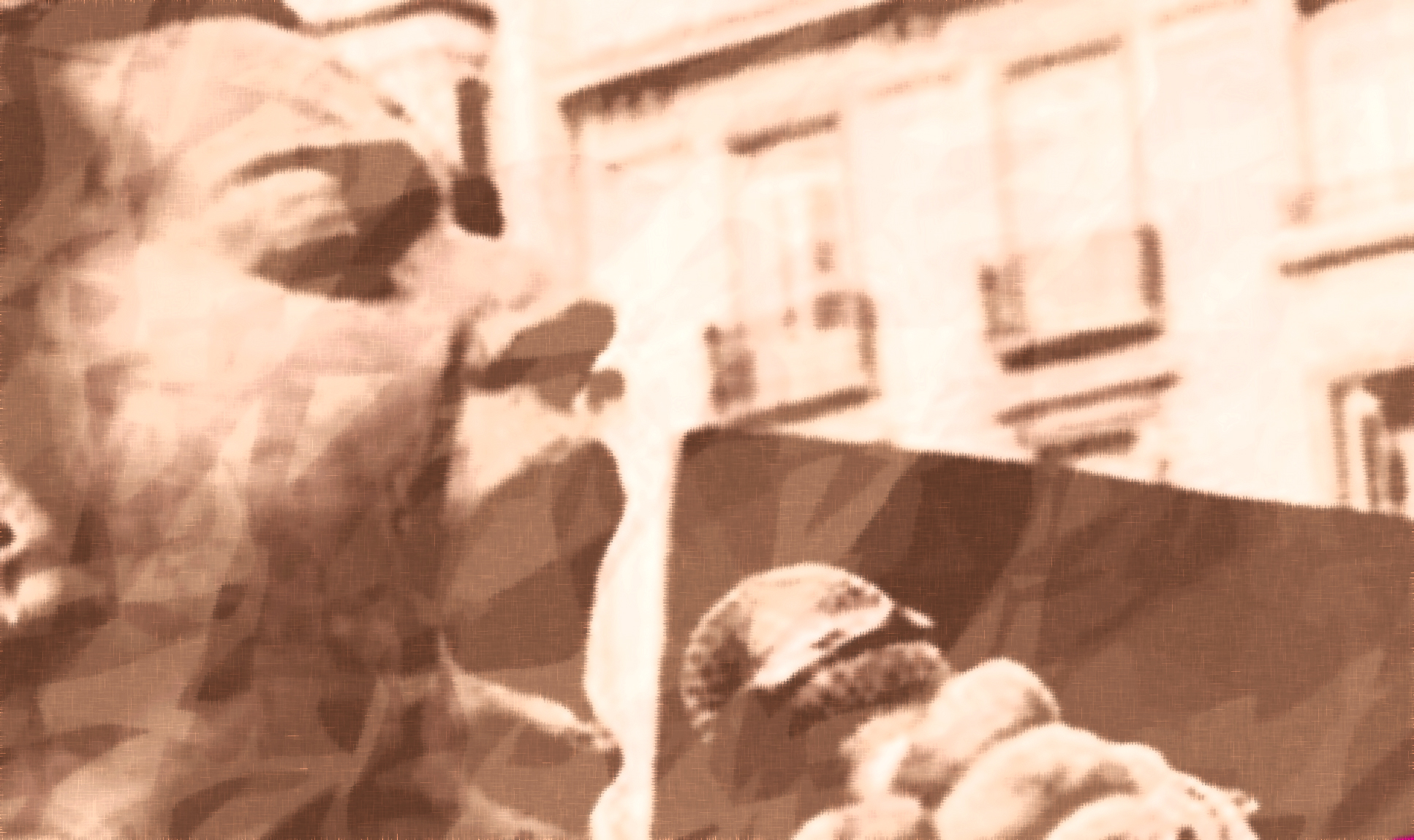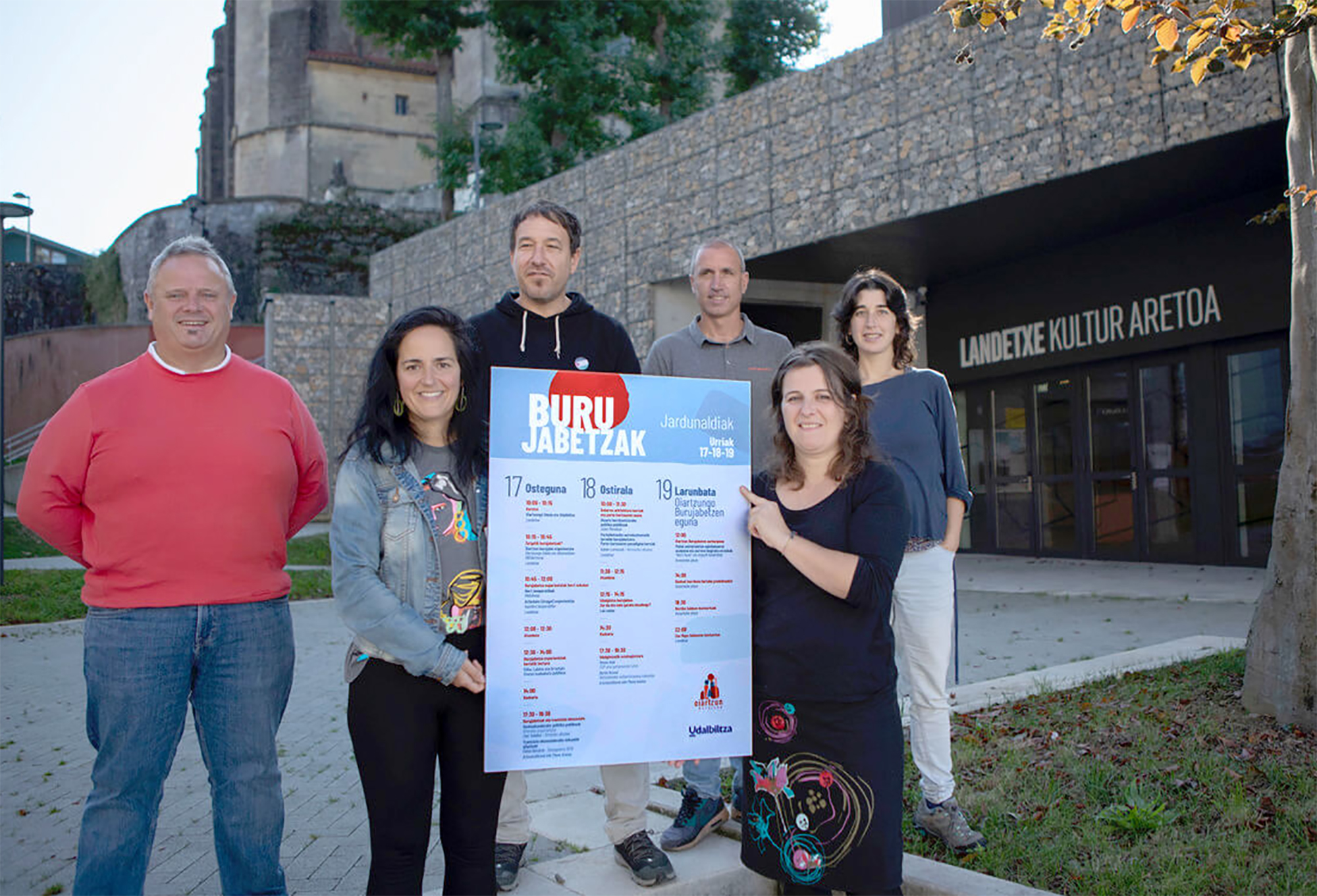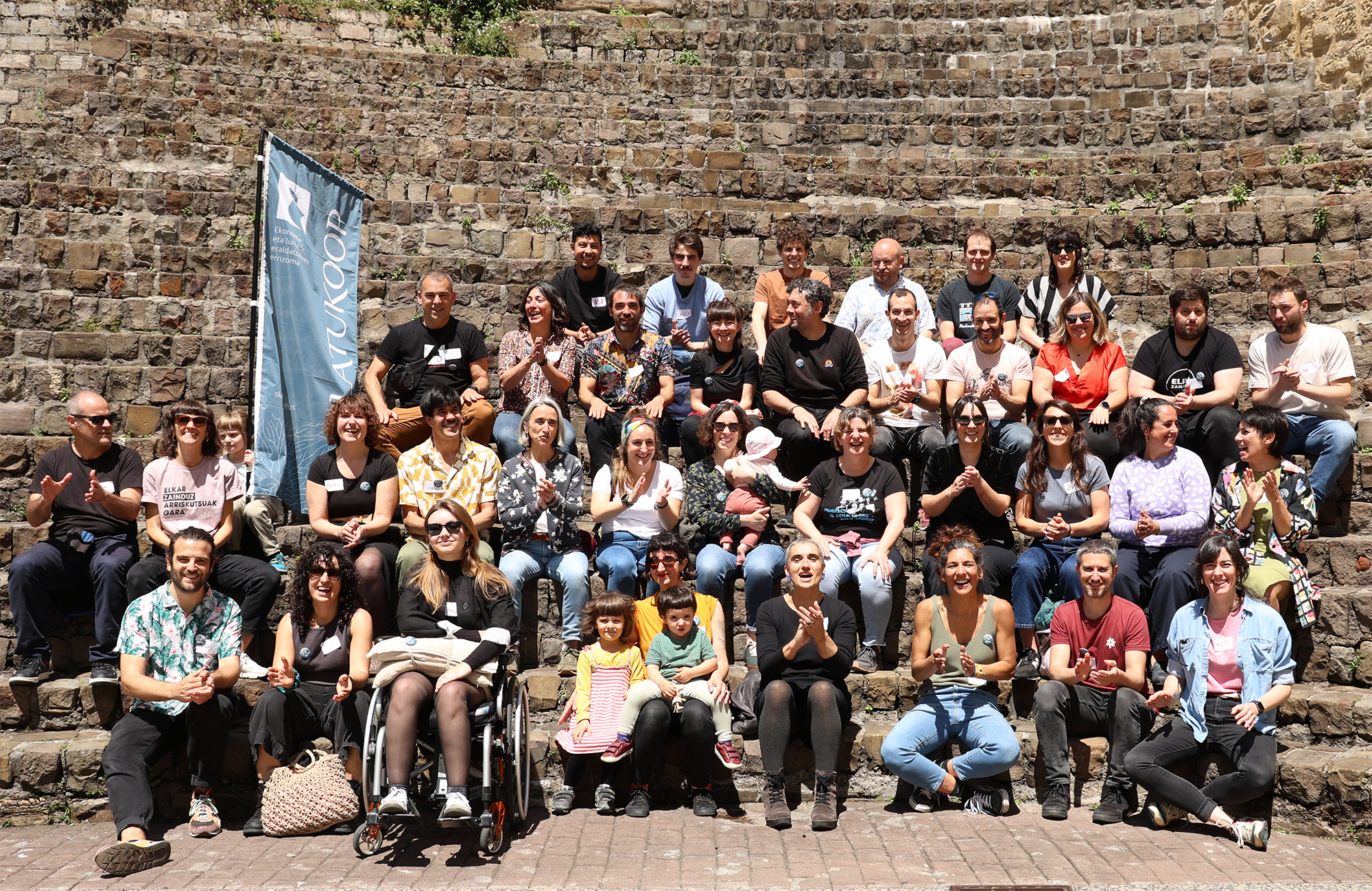Community development from an entrepreneurial point of view
- In a context of deep crisis, attempts to give a new direction and meaning to the economy are becoming more and more numerous. Bergara’s programme Berrekin.Berregin has been for two months a training space for entrepreneurship aimed at social transformation.
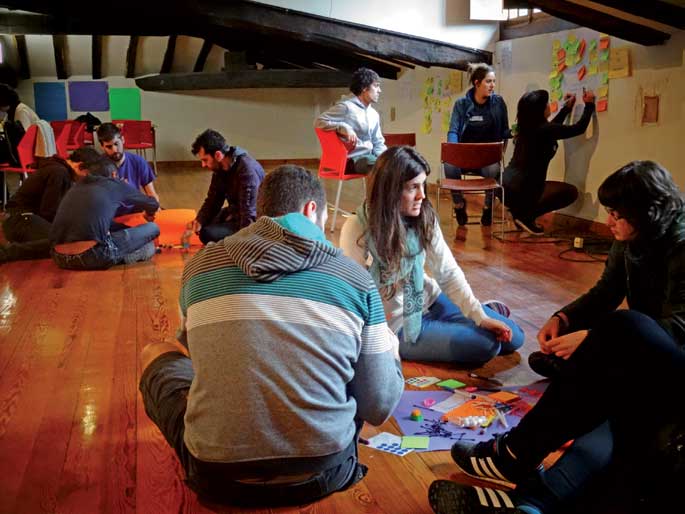
Entrepreneurship. This word used and chewed can have very different meanings taking into account the context, the subject and, above all, the objective. It cannot be understood in the same way as anyone who has created a start-up of exclusive self-destruction or who has created a cooperative to meet a community need.
“There is a good start-up and another one that is cheery and misleading.” They are words of Amalio Rey, an expert in collective innovation of reference and founder of the company Emotools. The Cuban settled in Malaga has been in Bergara Berrekin.Berregin to tell his experience. In Rey’s opinion, there are people who launch into a new business for “desperation,” to get jobs or change jobs, while others do because they believe that society needs different solutions: “The fundamental objective of social entrepreneurship is to solve the problems that society has, it does not respond directly to the need for employment.”
In Bergara, work has been done over the last two or three months on social entrepreneurship, on the training programme organised by the Bergara City Council, the social economy and transformative network Olatukoop and the Lanki Institute of Mondragon Unibertsitatea. In addition to knowing the experiences of the different agents, the program has aimed to identify the needs of the region and connect them with the motivation of the youth: “It was clear to us from the beginning that this course should be part of the logic of community development, gathering the initiatives that could be created from it with the paradigm of self-organization,” says Aritz Kanpandengi, coordinator of Lanki. From the beginning this vision has been very welcome.”
Thus, in addition to the training, a seedbed has been held in Bergara and the students have drawn seven projects. Now, the implementation of these entrepreneurial ideas will be the main challenge and, well along the way, they will serve to publicize new initiatives in the region.
The “umbrella” of social entrepreneurship
Theorizations about social entrepreneurship are not the day before yesterday. In the 1990s, several experts published studies on these topics and began expanding global networks such as Ashoka, which bring together social entrepreneurs. In those days, for example, the financier Jimmy Wales created an open-source encyclopedia based on collaborative knowledge. Wikipedia.
It is clear that, in defining the concept of “social entrepreneurship”, there is no consensus today. In Kanpandegi’s view, it is an “umbrella” that brings together different sensibilities: “There are those who use this ‘social’ only as a marketing strategy; our starting point is another and we place the ‘social entrepreneurship’ within the social challenges we live today, such as the energy, environmental and the need for a more balanced and just society.”
To delve deeper into this theoretical framework, the students of Bergara have been able to know the experiences and reflections of many people – in total 18 speakers have been made. The views of many of them are available in the program blog berrekinberregin.org.
The programme has also had external visits. Ruben Sukidach of Xarxa d’Economia Solidària and Alvaro Porro de EstArter, pioneers in Catalonia on social innovation, have explained the influence of the Community institutions in this country: “They are spaces for experimentation that create structures and systems to otherwise meet people’s needs, and have managed to filter into broader layers of society,” explains Sukidach.
As a tool “Social canvas”
Given that the objective of the programme Berrekin.Berregin is to put our feet on the creation of companies or social initiatives, the sessions held in Bergara have attached great importance to the tools to be developed: “Throughout the course, a question has arisen – says Kanpandegi –: does social entrepreneurship need concrete tools or is it enough to use ‘conventional’ business tools in a different sense?”
For the co-worker, they are probably both useful approaches. Participants have thus had the opportunity to learn about their own tools, including the “Social canvas” created by the REAS (Solidarity Economy Network) network.
Canvas is an easy way for entrepreneurs to predict the keys to their business before starting a business. Let's say, a business plan brought to a flexible folio. This method, however, can be adapted from a social point of view, and the positive and negative effects that the new project may have on the community can be identified. Iratxe Atxa is a member of the Saiolan Business and Innovation Centre: “Canvasa is a synoptic tool in which the keys to a new business activity can be seen in full. When to use it? When we have no more than an outline of ideas; when we have the project well worked, but we want to present it in the short term; or when we want to question the way in which a company already in operation generates wealth”.
A short-term economic viability is often required which, according to Atxa, it is not possible to comply with the new projects, without taking into account the “social wealth” generated at this beginning.
The ideas that have emerged from the Bergara programme are already planted to be entrepreneurial and socially sustainable projects.
Nortasuna Sarean jardunaldien 10. edizioa egingo dute asteazken honetan Donostiako San Telmon, KomunikaziONA bideguruatzean izenburupean. Egungo komunikazio joerak aztertu eta "alternatiba osasuntsuagoak" topatzen saiatuko dira. Hainbat hizlari gonbidatu dituzte, euren... [+]
Gasteizko Eraman kooperatibak banaketa “era jasangarri eta etikoan” eginez bertako komertzioa bultzatzeko helburua du bere sorreratik, Arabako hiriburuan eta hango bizilagunengan pentsatuta. Hainbat ekimenetan parte hartzen du, horien artean ikasturte honetan egiten... [+]
Gure lurraldeetan eta bizitzetan sortzen diren behar, desio eta ekimenen inguruan gero eta gehiago entzuten dugu harreman eta proiektu publiko-komunitarioak landu beharraz, eta pozgarria da benetan, merkaturik gabeko gizarte antolaketarako ezinbesteko eredua baita. Baina... [+]
Budgets and the closure of annual accounts are nothing more at this time, from the domestic economy to most of the socio-economic spaces that we share. Large companies have begun to extract calculators and implement major plans for 2025. Small and medium-sized institutions and... [+]
I write these lines the day after the elections to the European Parliament, the dark times, the triumph of the Reactionary International in the elections to the European Parliament. It was already in advance and it is the confirmation of the conservative phase we live in, but it... [+]









